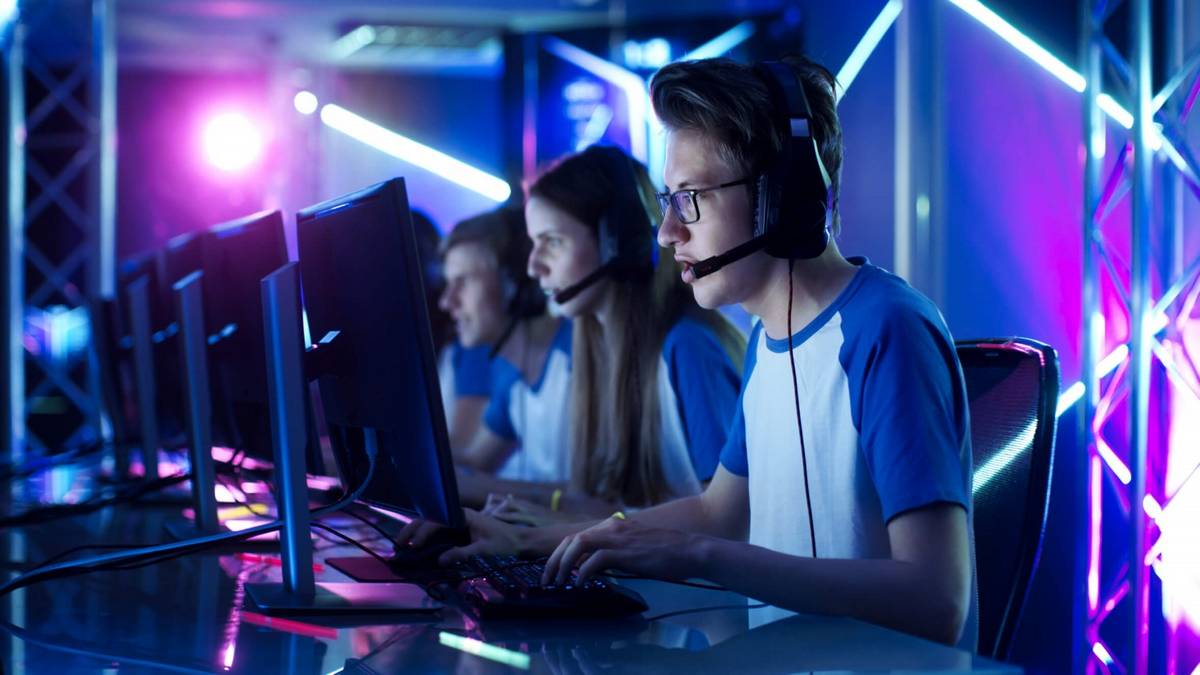
In recent years, competitive gaming, known as esports, has reached unprecedented heights in the world of entertainment and sports. And it wasn’t always this way.
Initially, computer sports emerged as an opportunity to temporarily disconnect from reality and dive into virtual worlds to compete with friends and like-minded individuals. Over time, the weight of the industry only grew and it began to cast a projection into other markets, particularly the betting and gambling market. Popular disciplines like VALORANT became part of the larger sports betting market ecosystem, and valorant betting sites became on par with well-known licensed bookmakers.
In addition, esports has transcended leisure activities and has become a cultural phenomenon, extending its influence even into the education sector. The merger of Cybersports and education has proven to be a winning combination, providing students with many benefits. In this article, we will talk in more detail about the merger of computer sports and educational systems, the benefits and advantages for students and their impact on the industry.
Teamwork and communication
One of the most notable aspects of competitive gaming is that it emphasises teamwork and communication. Competitive games such as League of Legends, Dota 2, and Counter-Strike: Global Offensive require players to work together effectively, similar to traditional team sports. In these games, players are not individuals; they are members of a team working towards a common goal of winning.
Developing co-operation
Competitive games teach students the art of cooperation. In a team environment, players must coordinate their actions, make quick decisions, and communicate effectively to outmanoeuvre their opponents. These skills are invaluable in real life, such as group projects, where effective teamwork can be the deciding factor between success and failure.
Developing communication skills
Esports also encourages the development of clear and concise communication. Players must convey information quickly and accurately, often using game jargon and terminology. This develops the ability to communicate complex ideas simply — a skill that will come in handy in their academic and professional careers.
Career prospects in esports
While many still view gaming as purely recreational, the Cybersports industry offers many career opportunities that can be very rewarding for students. Cybersport is not just about gaming: it encompasses a wide range of careers, from coaching and management to marketing and event organisation.
Professional players
The most visible and logical career path in esports is to become a professional player. Talented players can earn significant income by playing in top level championships. Students with outstanding playing skills can also receive scholarships and sponsorship, allowing them to afford to pursue higher education while pursuing their passion.
Non-gaming roles
However, Cybersports isn’t just for those who excel at gaming. It also provides opportunities for students interested in fields such as journalism, video production, event management and marketing. The industry requires a wide variety of talents to succeed, giving students the opportunity to combine their academic The International ers with their love of gaming.
Intercollegiate and high school leagues
Cybersports has come to educational institutions, leading to the emergence of intercollegiate and high school esports leagues. They provide students with structured competition and also develop a sense of community.
Scholarships and recognition
Many colleges and universities offer scholarships for esports, attracting talented gamers to their campuses. These scholarships often cover tuition and related costs, making higher education more accessible to eSports enthusiasts. Additionally, participation on a Cybersports team can provide students with recognition and a sense of belonging, much like traditional sports teams.
Career Preparation
Participation in high school or college Cybersports leagues can be a stepping stone to a career in the industry. Students gain valuable experience in a competitive environment, develop their skills and make connections that can prove invaluable when seeking employment in the world of Cybersports.
Personal development and wellness
Cybersport is not just about competition, it also promotes personal development and wellbeing. Contrary to the stereotypical view of gamers as isolated individuals, esports fosters social bonding and personal growth.
Mental acuity
Competitive games require players to have sharp cognitive skills. Players must strategise, make quick decisions and adapt to constantly changing conditions. These mental challenges foster problem-solving and critical thinking abilities that can be utilised in education.
Community and friendship
Cybersports communities thrive both online and offline. Players often develop lasting friendships with teammates and opponents. These connections help combat feelings of loneliness and create a support network for students.
Stress relief
Cybersports can also serve as a stress reliever for students by providing a distraction from academic pressures. Participating in gaming sessions with friends can be a relaxing and enjoyable way to unwind after a long day of studying.
Conclusion
Cybersports and education are not mutually exclusive, but can complement each other in surprising ways. Fusing competitive gaming with academics opens up new opportunities for personal and professional growth. From sharpening teamwork and communication skills to a variety of career opportunities, esports is a useful addition to the educational landscape. As intercollegiate and high school leagues grow, more and more students will be able to experience the positive impact of esports on their lives. So whether you are a student looking to combine your passion for gaming with your education, or an educator looking for innovative ways to engage students, Cybersports could be the key to a brighter and more fulfilling future.


